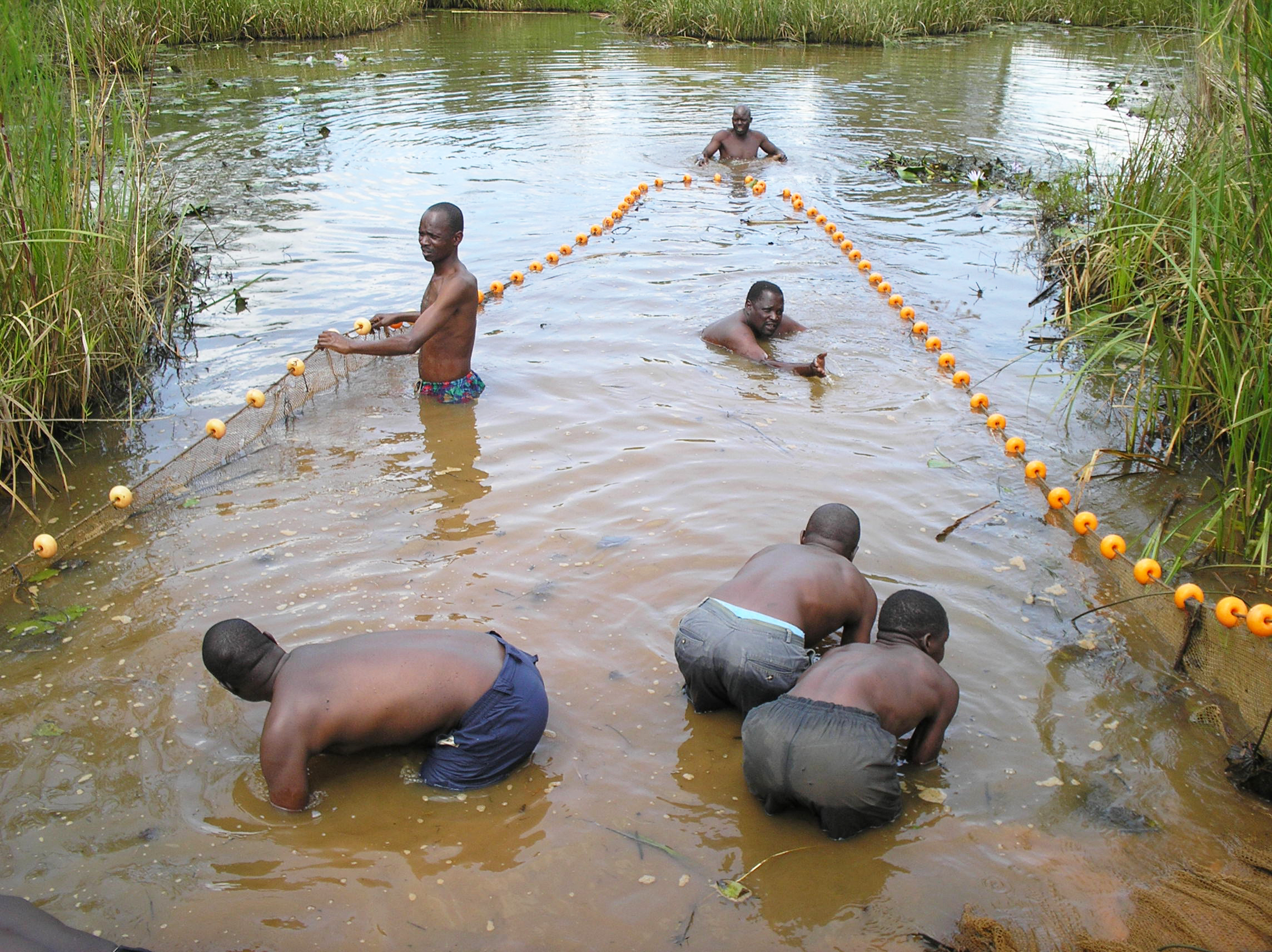
Almost 46 percent of the world’s total fish production in 2018 came from aquaculture, up from 25.7 percent in 2000. The sub-sector is also a growing employer across the world. It employs over one-third of all the global work force in fisheries and aquaculture—35 percent in 2018, up from 17 percent in 1990. It is expected to contribute 48 percent of global fish production by 2030. Investor interest in aquaculture is increasing in many countries, especially in Asia.
Such economic growth must be matched with socio-environmental concerns. New trends in aquaculture activities need to be identified. Occupational safety and health issues need to be addressed, while accounting for women’s work, social development and gender relations. Crucially, any threats to fishing communities from aquaculture operations, including their tenure rights, must be addressed. There is also a need to outline responsible practices and appropriate forms of small-scale aquaculture.
ICSF’s aquaculture programme will look at how the sector can contribute to Sustainable Development Goals (SDG) by 2030. How to better understand this growth and its implications. How to secure local community rights over water bodies. How to build capacities, use local species that contribute to food security.
In 2010 ICSF and Kolkata’s Inland Fisheries Society of India (IFSI) held a workshop titled ‘Small Indigenous Freshwater Fish Species: Their Role in Poverty Alleviation, Food Security and Conservation of Biodiversity’ to bring together stakeholders. It highlighted the role of small indigenous freshwater fish species (SIFFS)—of unique nutritional benefit if cooked in traditional ways—in rural food and livelihood security, as also in conserving biodiversity. Their socioeconomic and cultural relevance, how to enhance access, especially of women, to better income and nutrition.
ICSF will launch a new programme in 2020 to study India’s aquaculture systems to promote sustainable development and a human rights-based approach.

Aquaculture is poised for boom all over the world especially in countries like India where it is traditionally practised. ICSF launched a new programme in 2020 to study India’s aquaculture systems to promote sustainable development and a human rights-based approach. India’s Neel Kranti Mission (Mission Blue Revolution) aims to triple fish production, especially from aquaculture.
This document provides an overview of FAO’s intersessional work on traceability and Catch Documentation Schemes (CDS) in response to recommendations of the 18th Session of the COFI Sub-Committee on Fish...
This document reviews the latest developments in food safety related to market access for aquatic products. It presents recent FAO activities on food quality and safety in the fisheries and...
This document outlines the engagement of FAO on a number of global themes within the context of the FAO Strategic Framework 2022-31 and the 2030 Agenda for Sustainable Development (2030 ...
This document briefly outlines global trends in the fisheries and aquaculture sector, focusing on major facts and relevant international trade developments since the 18th Session of the COFI Sub Committee...

Highlights of the Bill The Bill amends the Coastal Aquaculture Authority Act, 2005. The Act defines coastal aquaculture as farming, under controlled conditions, of: (i) shrimp, (ii) prawn, (iii) fish...

Highlights of the Bill The Bill amends the Coastal Aquaculture Authority Act, 2005. The Act defines coastal aquaculture as farming, under controlled conditions, of: (i) shrimp, (ii) prawn, (iii) fish...
The Fourth Session of the Intergovernmental Technical Working Group on Aquatic Genetic Resources for Food and Agriculture (Working Group) was held in Rome, Italy, from 21 to 23 February 2023....
The Eleventh Session of the Sub-Committee on Aquaculture of the FAO Committee on Fisheries was held virtually in Rome, Italy, from 24 to 27 May 2022. The Sub-Committee commended FAO’s...
The FAO Strategic Framework 2022-2031 seeks to support the 2030 Agenda for Sustainable Development through the transformation to more efficient, inclusive, resilient and sustainable agrifood systems for better production, better...
Algae, including seaweeds (or marine macro-algae) and microalgae, contribute nearly 30 percent of world aquaculture production (in wet weight), primarily from seaweeds. Seaweeds and microalgae generate socioeconomic benefits to tens...